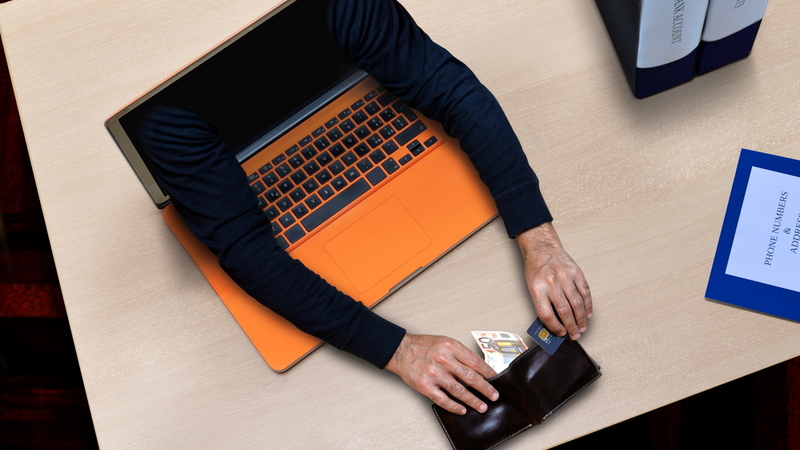If you've been following the news lately, then you might have heard about a Newcastle University student who was scammed out of £650 for what they thought was a new iPhone X device. It was whilst browsing a smartphone application called Shpock that Omar found the iPhone X advertised for a price that seemed just too good to be true.
After arranging to meet the seller at his university accommodation, and handing over £650 in cash, the student opened his iPhone X box to discover that the packaging was in fact filled with concrete to match the specified weight of the new Apple device. However, the seller had since hurried away and as of yet has not been traced by police.
So, what did Omar do wrong, and could he have avoided losing out on his cash? Below, we’ll look at how you can avoid getting scammed if you do try to purchase a new or used device online, or in person.
Buying online
When many of us think about buying something second-hand, we think about marketplace websites such as eBay. However, although this marketplace website is secure, you can still fall victim to scams if you buy something from the wrong type of seller. Here are a few pieces of advice if you’re looking to buy a new or used tablet or smartphone from the internet.
Look for seller feedback
If you’re dealing with a seller advertising on a platform such as eBay, then the positive news is that each seller has feedback that is based on their previous transactions with other customers. This gives you some clear indication over whether you can trust a seller to provide the goods they’re offering. Websites aside from eBay now also regularly publish customer reviews on their websites. If you’re in any doubt as to the authenticity of the reviews, or haven’t heard of the retailer before, then either don’t hand over any money and go elsewhere, or google the name of the company and look for feedback.
Watch out for rogue listings
There have been other news stories in the past involving a different kind of scam. In some cases, sellers have cleverly worded their listings to make it look like they’re selling a brand-new device such as a games console for a very low price. However, on closer inspection, the listing is advertising an empty box. Alternatively, there have been cases on websites like eBay where a seller has done exactly what the person at the top of this article did; advertised a new product, but shipped the box out to the buyer containing concrete, bricks or some other heavy materials.
Luckily, if you avoid rogue sellers with little-to-no feedback, you’ll generally be OK. Additionally, if you’re completing the transaction through an official website, the likelihood is that there will be a resolution process to try and reclaim your money if a sale isn’t legitimate. Still, you need to be careful who you’re buying from when you can’t physically see them.
Collection in person
Collecting an item in person might seem like the safer way to avoid losing out on your hard-earned money. However, it’s not always the safest method overall, and you may find yourself with little recourse if you do fall victim to a scam. Typically, sales like these will be advertised on a platform like Shpock, Gumtree, the Facebook Marketplace, or another similar app, and you’ll meet the seller in person to hand over the cash, much like the unfortunate student we described above.
Meet in populated and well-lit areas
If you do choose to go ahead with a collection in person, then make sure you consider your personal safety, not just the legitimacy of the sale. Don’t meet your seller in the middle of an empty park late in the evening; instead, try arranging to meet them in a busy shopping centre, or at their own home if you feel safe in doing so. It’s also worth considering leaving your cash inside a locked car if you have driven to meet the seller, until you can verify the legitimacy of the product.
Examine the product before paying
Had the student in our story opened the iPhone X box before handing over the cash, then he would’ve found the box packed with concrete. The moral of this story is to verify the product as working, before handing over any money to purchase it. Remember, even if a device switches on, it could still be defective. You’ll want to quickly test that it can make phone calls, that the speakers work, that it charges successfully, and any other basic functions you can think to check.
Consider using established stores
With all the above in mind, sales in person are still safest when done through an official, brick and mortar store. This way, you know that any refurbishment has been done by a professional, and there’s a point of contact to return to should you experience any problems. WiseGuys, for example, sell professionally refurbished phones that come with our own product guarantee, so you can be sure that you won’t run into any problems that can’t be resolved.
Any questions?
If you have any questions, then you can get in touch with our support team on 0808 123 2820. We might also be able to help you with a professionally refurbished Apple or Android device.



Recent Comments